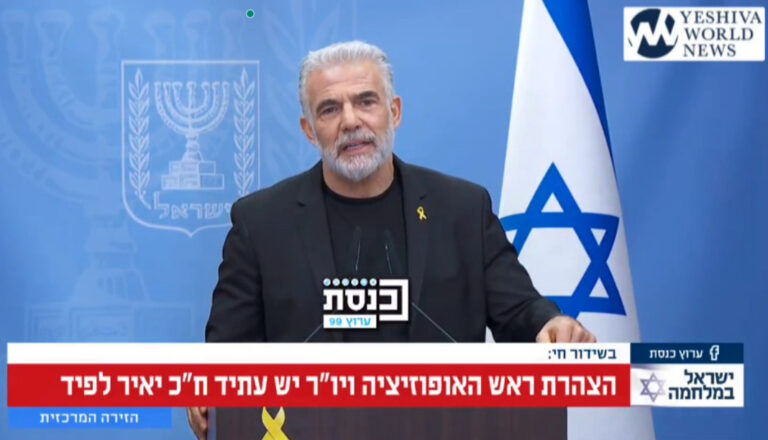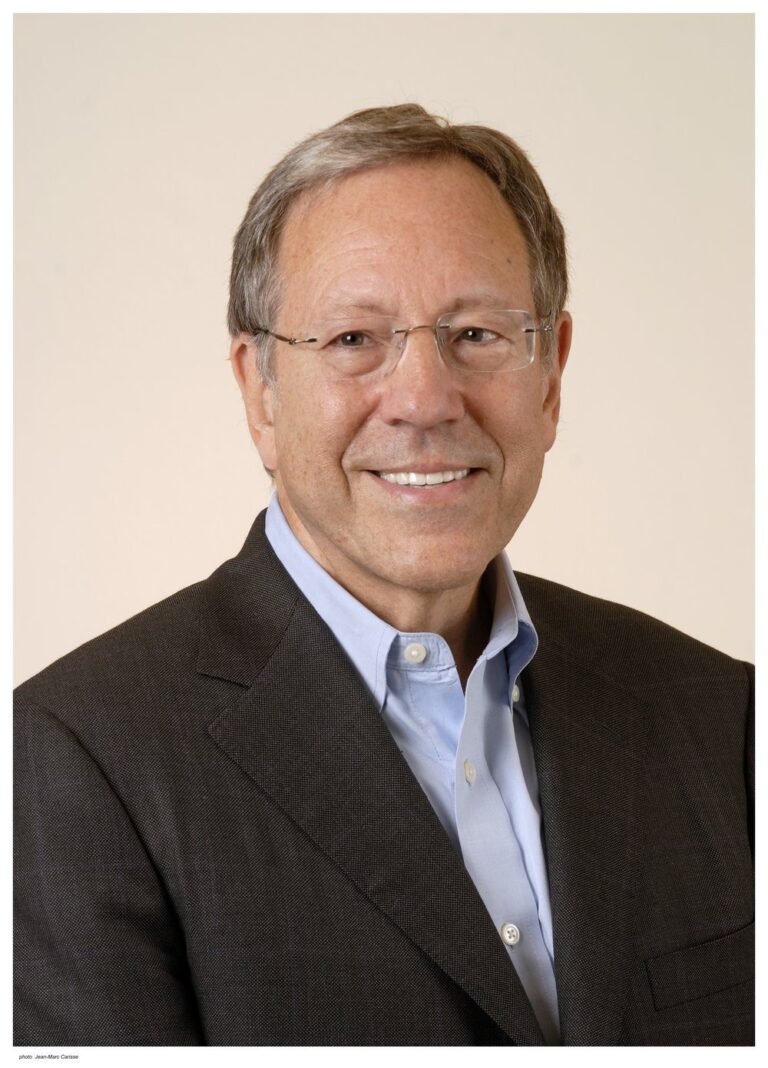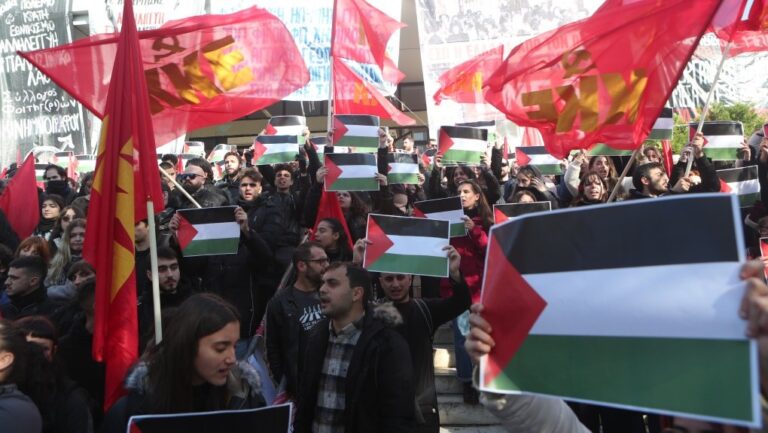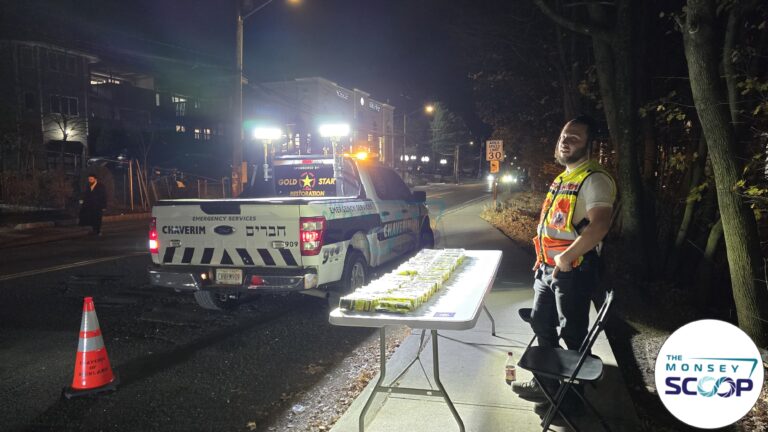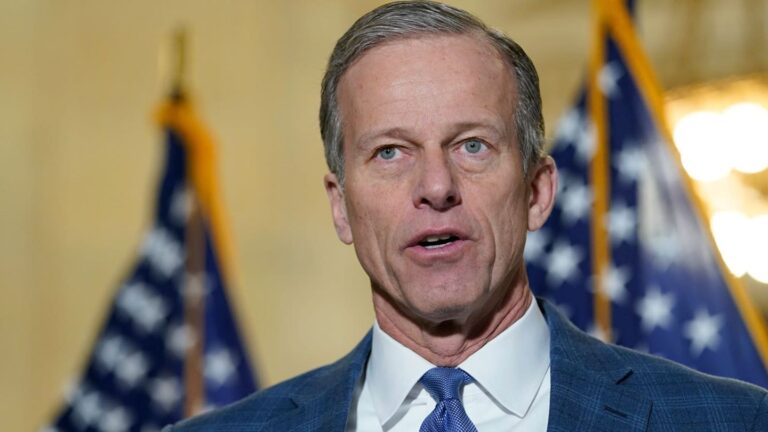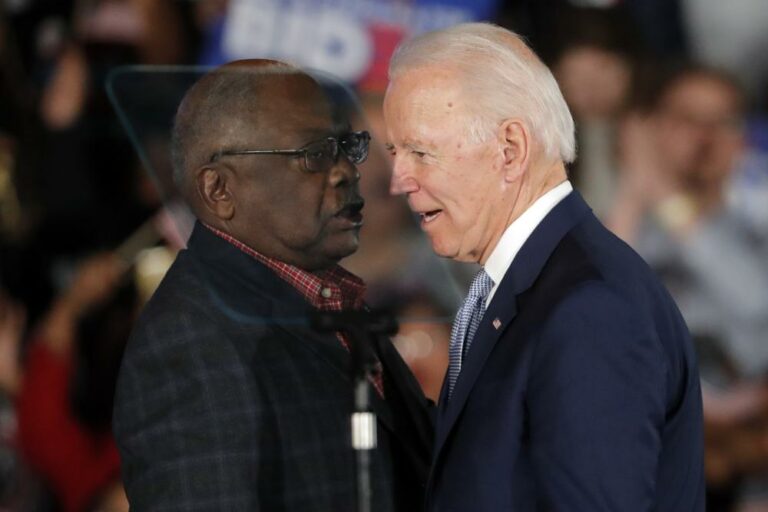
[Halachically Speaking appears on YWN weekly, Tuesdays and Thursdays]
Written by Rabbi Moishe Dovid Lebovits of KOF-K Kosher Supervisio
It is a mitzvah d’oraisa for one to honor and fear[1] his parents.[2] One who properly respects his parents is rewarded with long life,[3] and will have Hashem live amongst him.[4] Additionally, one who is careful with thismitzvah will merit having children who honor him.[5] Some say honoring parents is a greater mitzvah than honoring Hashem.[6] There is no shiur to the amount of kibud, etc. one is required to show to his parents.[7] One has to be very careful with this mitzvah,[8] since it is one of the hardest mitzvahs to keep properly.[9]
A person who really wants to honor his parents should become a learned person accompanied with yiras shomayim and this will be a big nachas for his parents, since people will say “who are his parents.”[10]
Reason
The Chinuch[11] says the reason for the mitzvah is to show hakaras hatov to one’s parents who brought him into this world. One who recognizes the good that his parents do for him on a daily basis will come to recognize the good that Hashem does for him on a daily basis.[12]
Laxity
Many people who are very careful with the observance of other mitzvahs are very lax in regard to the mitzvah of kibud and yira of his parents. This is something which should be corrected.[13]
The Chazzon Ish said that one should be very careful with this mitzvah during ben hazemanim when boys are at home more often than during the year.[14]
One common area which needs to be reviewed is the halacha of calling parents by their first name. These halachos will be discussed in detail below.
Referring to a Parent by Name
One is not allowed to refer to his father or mother[15] by their first name even if the parent is not present.[16] This issur also applies after a parent passes away.[17] The source for this issur is the obligation to have “morah”- fear for one’s parents.[18] Accordingly, one may not say “I am Moshe’s son.”[19]
Added Titles
One is permitted to refer to his father by name if one adds uvi, abbah,[20] or Rav, etc.[21] before the name.[22] Some say one should add uvi morei.[23] Similarly, one may say “I am the daughter of Mrs. so and so.”
Many poskim say that this should not be done in the presence of the parent.[24] Others say one is always forbidden to mention a parent’s name even with an added title.[25] L’maseh, Horav Moshe Feinstein zt”l[26] permits adding a title when one needs to mention a parent’s name.
Referring to a Parent In-Law
One is obligated to honor his in-laws just as he is obligated to honor his parents.[27] However, one does not have to fear his in-laws.[28] Accordingly, it would seem that one may call a parent in-law by name. However, theposkim stress that this may not be done, and parent’s in-law should be treated the same way as a parent.[29] Some say the issur of referring by name is included in the obligation of kovod – honor. According to this opinion there would be no difference between a parent and a parent in-law.[30]
A Person with the Same Name
The question arises if one is allowed to refer to a friend who has the same name as his parent by the friend’s name. Some poskim say that one may only refer to the friend by his name if he changes the name slightly.[31] For example, one whose friend and father are both named Mordechai may call his friend Mordy or Mutty. Accordingly, the Sefardim who have the custom to name a child after a living parent[32] should be careful to change the name slightly when calling a child’s name in front of the parent.[33]
However, many poskim say that one is permitted to refer to a friend using a parent’s name even in their presence, since we can assume that the parent does not mind.[34] Others hold that one should not use his father’s name to refer to someone else while in their presence father’s.[35]
Uncommon Name
If the parent has an uncommon name then one may not use the name to refer to a friend who has the same uncommon name even if he is not in the presence of the parent,[36]unless the name is changed slightly.[37] However, after the parent has passed away, referring to the friend using the same uncommon name is permitted.[38]
Who’s Son are You?
There is a discussion in the poskim if one is asked “whose son are you?” is he allowed to say “I am the son of so and so.” Some poskim say that one is permitted to say “I am the son of so and so” but one should say Reb before his father’s name[39] and moras before his mother’s name. One may also say “my father’s name is so and so.”
Abbah
According to some poskim,[40] one whose father’s name is Abbah should refer to his father as uvi morei.
Mazel Tov
One who has a mother whose name is Mazel Tov is permitted to say Mazel Tov to someone at a simcha eventhough it is the name of his mother.[41]
Writing a Parents name
There is a discussion in the poskim if the above halachos apply to writing a parent’s name. Some poskim permit this[42] while other hold that it should not be done.[43] This is very common when signing one’s name as a witness to a kesuba. For example, Yitzchok ben Avraham. L’maseh one is permitted to write a parent’s name unless he is writing a letter, etc to them.[44]
Two Names
One whose father’s name is Yosef may refer to his friend Yosef Chaim in front of his father because it is not considered to be the same.[45] One whose father’s name is Yisroel Meir but is called Yisroel may refer to his friendYisroel Meir even in front of his father.[46] If one’s father’s name was changed for whatever reason, or if the father is called by a nickname, his son may refer to a friend using the original name of his father.[47]
Mi Shi’be’rach
One who is making a mi shi’be’rach for his father or mother should say uvi morei or ema morasei before saying the name.[48] If the parent is present one should say uvi morei or ema etc. without mentioning the actual name at all.[49]
Aliyah L’Torah
When one is asked by a gabbai for his name in order to receive an aliyah, one should respond by adding a title before saying his father’s name.[50] For example, ploni ben Rav[51] or ploni ben uvi morei[52] even if the parent is not present.[53] The gabbai should call his own father to the Torah by saying yamod uvi morei.[54] One may read a posuk from the Torah which contains the name of his father even in his presence.[55]
While Davening
One who wants to daven for a parent should not say uvi morei etc. since when one is davening to Hashem there should be no mention of the greatness of other people.[56] Instead, one should say my father Yaakov and then the name of your father’s mother, as is done for anyone else one davens for.[57]
Based on this some say that one should not say harachamon uvi murei in bentching, and should instead say uvi.[58] Others say mentioning uvi morei is permitted because it is a beracha and not a tefilla.[59]
Mechilah
A child may refer to his parent by name with the parent’s permission.[60] However, the child still fulfills a mitzvah by refraining from doing so.[61]
Lenient Opinion
There is an opinion in the poskim with the following leniency regarding the halachos mentioned in this issue.
When one is asked his parent’s name the one asking the question usually has no interest in knowing who the parent is but is asking to know who the son is. In such cases one is permitted to say the parent’s name without any honorable titles beforehand. The same is true when one is filling out legal papers or forms which ask for one’s parent’s name. One may write the name without any additional titles since they are not really interested in the parent’s name but they want to know who the person is.[62]
Based on this one is permitted to sign on a kesuba with his name ben his father’s name without any titles before his fathers name.[63] Many Rabbonim write a long nusach before their father’s name only to show kovod, and there is no need to do so since he is writing it only to know who the son is.
The same is true when getting an aliyah. When the gabbai says yamod the gabbai is interested in knowing who the son is but not the father, and the only way he can know the son’s name is by knowing who the father is.[64]
[1] Vayikra 19:3, Chinuch mitzvah 212, Shulchan Aruch 240:1.
[2] Parshas Yisro 20:12, Vayikra 19:3, V’eschanan 5:16. Refer to E’ven Ezra, Ramban, Ba’al Haturim, Kli Yuker, Sforno. On the topic of long life and this mitzvah refer to Mesechtas Kiddushin 40a, Rabbeinu B’chai Yisro page 199, Me’am Loez Yisro page 638, Derech Pekudeicha page 160:7, Torah Temimah Devarim Yisro 20:12, 5:16, Kibud Av V’eim (Yosef) pages 27-30, Metzuvei V’osei page 495. On the topic of why no beracha is recited on this mitzvah see Rashba 18, Shiurei Beracha Y.D. 240:1:page 54, Sdei Chemed mem:16, Aruch Ha’shulchan 4, Me’am Loez Yisro page 642, Shevet Ha’Levi Y.D. 1:111:1:page 132, Moreh Horim V’kebudom page 92:footnote 7).
[3] Parshas Yisro and V’eschanan ibid.
[4] Mesechtas Kiddushin 30b-31a.
[5] Medrash Tanchuma Kedoshim 15:pages 160-161 (new print), Orchos Yosher 14:pages 48-50, Metzuvei V’osei page 497.
[6] Mierei Mesechtas Kiddushin 31a, Aruch Ha’shulchan 240:1.
[7] Mierei ibid.
[8] Shulchan Aruch Y.D. 240:1, Ben Ish Chai Shoftim 2:1, see Chai Shual 2:43, Tunei D’bei Eliyahu 27. One must be a buki in this mitzvah since it is very common (Yesdo V’shoresh Hu’avodah shar hanitzutz 2:page 295 new print).
[9] Refer to Medrash Rabbah Ki Tzetzeh 2, Medrash Tanchuma Eikev 1, Yerushalmi Mesechtas Pe’ah 1:1.
[10] Kitzur Shulchan Aruch 143:21.
[11] Mitzvah 33, see Moreh Nevuchim 3:31, Kli Yuker Yisro 20:12.
[12] Rabbeinu B’Chai in Kad Hakemach pages 206-209, Meshech Chuchma Veschanan page 427 old print, Nishmas Adom 67:1, Derech Pekudeicha page 159:4, Refer to Michtav M’Eliyahu 3:page 95, 5:page 421, Metzuvei V’osei page 493.
[13] Pela Yoetz pages 296-299. Refer to Sefer Chassidim 342:page 257.
[14] Kibud Av V’eim (Yosef) page 48.
[15] Ben Ish Chai Shoftim 2:4, Chai Adom 67:8.
[16] Taz 4.
[17] Refer to Mesechtas Kiddushin 31b, Rashi “chachumim,” Rambam Hilchos Mamrim 6:3, Shulchan Aruch 240:2. The Rosh 1:50 and Rif page 13 do not bring this halacha, see Torah Temimah Vayikra 19:9. Many Pesukim and Gemorahs seem to be in contradiction to this halacha see Teferes Yisroel to Mesechtas Kiddushin 1:7, Yufei Leleiv 240:10, Ben Ish Chai Shoftim 2:5, Shem Hagedolim page 1:footnote 1 in depth, Sdei Chemed kof:klal 104:pages 196-197, Pardes Yosef Yisro page 174, Mishchas Shemen Parshas Vayechei 1:pages 186-187. Some places are Bereishis 28:4, 31:42, 32:9, 50:24, Mesechtas Kiddushin 31a, Bava Basra 56b, Pesachim 66a.
[18] Ramabam Hilchos Mamrim 6:3. For the reason why we do not refer to our parents in third person refer to Toras Moshe Toldos page 18, Aruch Ha’shulchan 242:38, Divrei Malkiel 3:75.
[19] Many question how the Tur was able to write adonei avi Ha’Rosh if he is mentioning his father’s name. (Refer to Sdei Chemed ibid). However, since it is derech kovod that the Tur was writing he was the head (Rosh) of Klal Yisroel it was permitted (Aruch Ha’shulchan 14).
[20] Tosfas Yeshonim Mesechtas Yoma 87a, Salmas Chaim 320:page 121.
[21] Radvaz to Rambam Hilchos Mamrim ibid.
[22] Yosef Ometz 87:page 104b, G’ra 242:36, Ben Ish Chai Shoftim 2:5, Bais Meir Y.D. 240.
[23] Refer to Sdei Chemed chof:104:page 202.
[24] Moreh Horim V’kebudim page 73.
[25] Yam Shel Shlomo Mesechtas Kiddushin 1:65, see Yabea Omer Y.D. 1:18:6, 2:15:4-5.
26 Igros Moshe Y.D. 1:133.
Refer to Yabea Omer Y.D. 2:15.
[27] Mechilta Yisro 18:7, Yalkut Shemonei Shmuel 1:24:133:page 728, Shulchan Aruch 240:24, Levush 24, Taz 19, Pischei Teshuva 20, Be’er Heitiv 17, Igeres Ha’Gra page 189 in back of Mesilas Yesharim, Chai Adom 67:17, 24, Aruch Ha’shulchan 44, Pela Yoetz chumiv page 241 new print, Yechaveh Da’as 6:51, Betzel Hachuchma 1:69, K’rayana D’igrisa 1:61, see Torah Temimah Shemos 18:8.
[28] Betzel Hachuchma 3:95, Moreh Horim V’kebudom 8:footnote 66.
[29] Ikrei Hadat Y.D. 26:7, Moreh Horim V’kebudom 8:58, see footnote 70, Opinion of Horav Elyashiv Shlita quoted in Otzer Kibbud Av V’eim page 418, Mivakshei Torah 4 (hard cover) page 312.
[30] Otzer Kibbud Av V’eim page 418.
[31] Rambam Hilchos Mamrim 6:3, Tur 240, Shulchan Aruch 240:2, Prisha 5.
[32] Refer to Shem Hagedolim 1:page 4:footnote 6 new print, Sheilas Sholom 2:243, Yabea Omer Y.D. 5:21, Yalkut Yosef soveh smochas 2:10:2:footnote 2 in depth, Keroei Shmo page 108, Shemiras Haguf V’hanefesh ibid:footnote 11 in depth, Otzer Habris page 339.
[33] Opinion of Horav Ben-zion Abba Shaul zt”l quoted in Moreh Horim V’kebudom page 81:footnote 24.
[34] Taz 5, Shach 3, Chai Adom 67:8, Igros Moshe Y.D. 1:133, Opinion of Horav Elyashiv Shlita quoted in Moreh Horim V’kebudom page 81:footnote 26.
[35] Ben Ish Chai Shoftim 2:5.
[36] Rambam Hilchos Mamrim 6:3.
[37] Moreh Horim V’kebudom 6:24.
[38] Moreh Horim V’kebudom page 81:footnote 27, see Sdei Chemed ibid:page 198.
[39] Refer to Pischei Teshuva 2, Yufei Leleiv 240:10.
[40] Shem Hagedolim pages 1-3.
[41] Torah Leshma 264.
[42] Yosef Ometz 87, Ben Ish Chai Shoftim 2:4, Igros Moshe Y.D. 1:133, Kibbud Av V’eim (Yosef) page 281, Opinion of Horav Ben-zion Abba Shaul zt”l quoted in Moreh Horim V’kebudom page 78:footnote 13.
[43] Refer to Emek Sheilah Y.D. 67, Be’er Sarim 2:52, see Hisoreros Teshuva Y.D. 1:121:pages 124-125, Doleh U’mashka page 266.
[44] Refer to Moreh Horim V’kebudom page 79:15, Am Hatorah 3:7.
[45] Opinion of Horav Elyashiv Shlita quoted in Moreh Horim V’kebudom 6:30:footnote 35.
[46] Moreh Horim V’kebudom 6:31:footnote 36.
[47] Opinion of Horav Elyashiv Shlita quoted in Moreh Horim V’kebudom 6:32:footnote 37, and in Mivakshei Torah 22:page 213, see Sdei Chemed chof:104:page 201.
[48] Opinion of Horav Ben-zion Abba Shaul zt”l quoted in Moreh Horim V’kebudom 6:33:footnote 38.
[49] Opinion of Horav Ben-zion Abba Shaul zt”l quoted in Moreh Horim V’kebudom 6:33:footnote 38.
[50] Moreh Horim V’kebudom 6:36. This is in a situation when the gabbai says the oleh’s first name and says ben…. (Horav Yisroel Belsky Shlita).
[51] Mivakshei Torah 20:page 153:15, Opinion of Horav Elyashiv Shlita quoted in Mivakshei Torah 22:page 212.
[52] Opinion of Horav Elyashiv Shlita quoted in Kibud Horim page 107
[53] Ibid.
[54] Opinion of Horav Ben-zion Abba Shaul zt”l and Horav Elayshiv Shlita quoted in Moreh Horim V’kebudom 6:36. Refer to Eretz Tzvi 1:97 who argues with this.
[55] Kibbud Av V’eim (Yosef) page 275.
[56] Sefer Chassidim 800:page 471, Birchei Yosef 240:4, Sdei Chemed chof:104:page 200, Moreh Horim V’kebudim pages 291-292. Others are lenient (Mekor Chesed on Sefer Chassidim ibid:1, Sheilas Rav 1:18:5).
[57] Birchei Yosef ibid, Ben Ish Chai Shoftim 2:5.
[58] Avnei Yushfei 1:185:7
[59] Lekutei Maharich 1:page 247 new print, Moreh Horim V’kebudom pages 293-294, Avnei Yushfei ibid quoting the opinion of Horav Elyashiv Shlita. Refer to Shearim Metzuyanim B’halacha 143:1 in regard to mentioning ones parent’s name by yizkor.
[60] Chai Adom ibid, Peulas Tzadik 2:39, Igros Moshe Y.D. 1:133, see Shulchan Aruch 240:19.
[61] Radvaz 1:524, Igros Moshe ibid, Mivakshei Torah 22:page 154.
[62] Refer to Am Hatorah 3:7:pages 74-76.
[63] Am Hatorah ibid:page 73.
[64] Am Hatorah ibid:page 77. Horav Yisroel Belsky Shlita agreed to this.

